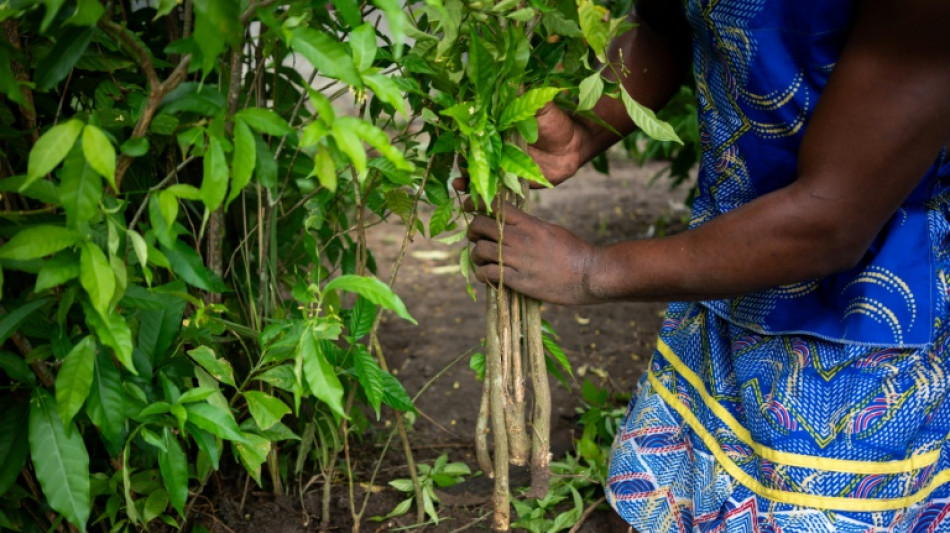
-
 'Pragmatic' approach could reap 'ambitious' UK-EU deal: Starmer
'Pragmatic' approach could reap 'ambitious' UK-EU deal: Starmer
-
Thousands confined indoors by toxic chlorine cloud in Spain

-
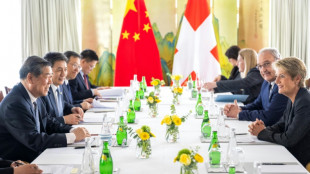 US and China meet in bid to 'de-escalate' trade war
US and China meet in bid to 'de-escalate' trade war
-
European leaders in Kyiv for show of solidarity against Russia

-
 India, Pakistan launch multiple attacks as US warns against 'miscalculation'
India, Pakistan launch multiple attacks as US warns against 'miscalculation'
-
Trump faces Mideast tensions on return to his 'happy place'
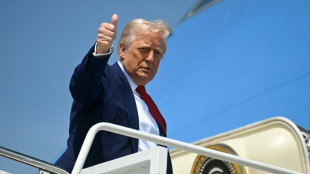
-
 Swords, orbs and fist-bumps: US presidents in Saudi
Swords, orbs and fist-bumps: US presidents in Saudi
-
US and China set for talks in bid to 'de-escalate' trade war
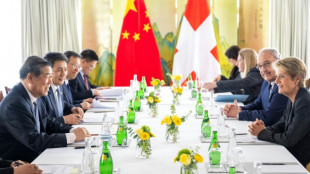
-
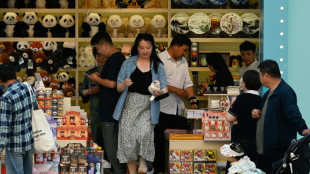 China's consumption slide deepens as tariff war bites
China's consumption slide deepens as tariff war bites
-
European leaders arrive in Kyiv in show of solidarity against Russia

-
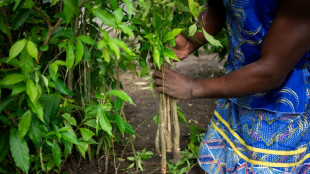 Gabon longs to cash in on sacred hallucinogenic remedy
Gabon longs to cash in on sacred hallucinogenic remedy
-
Mitchell magic as Cavs down Pacers, Nuggets silence Thunder in overtime

-
 Pakistan retaliates against India in spiralling conflict
Pakistan retaliates against India in spiralling conflict
-
S. Korea conservative party begins process to switch presidential candidate

-
 Fijian Drua grieve death of Castres winger Raisuqe
Fijian Drua grieve death of Castres winger Raisuqe
-
Pakistan says Indian missiles strike air bases as conflict spirals

-
 Spieth seeks career Slam as rivals ponder Rory Slam chances
Spieth seeks career Slam as rivals ponder Rory Slam chances
-
Major difference for McIlroy at PGA after winning Masters

-
 Top-ranked Korda shares LPGA Americas lead in repeat bid
Top-ranked Korda shares LPGA Americas lead in repeat bid
-
US and China prepare for trade talks as Trump floats tariff cut

-
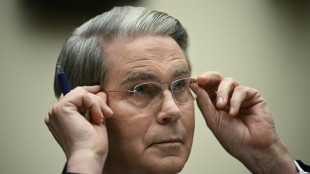 US projected to hit debt limit in August: Treasury chief
US projected to hit debt limit in August: Treasury chief
-
'You're gonna be the Pope,' Leo XIV's brother recalls telling him
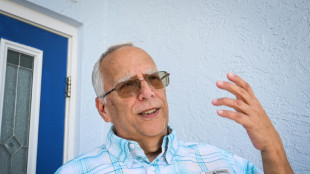
-
 Guardiola says Man City season has been toughest in management
Guardiola says Man City season has been toughest in management
-
'It's terrific': Chicago hails hometown hero Pope Leo XIV
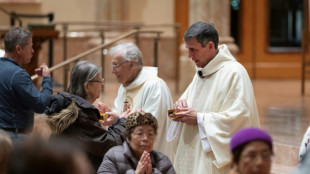
-
 Europe leaders head to Kyiv on unprecedented visit
Europe leaders head to Kyiv on unprecedented visit
-
Pakistan warns won't de-escalate as conflict with India spirals

-
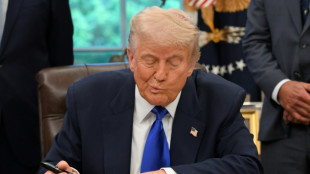 Stocks mixed as global markets eye US-China tariff talks
Stocks mixed as global markets eye US-China tariff talks
-
Serbia's Vucic seeks low-price gas in Putin meeting
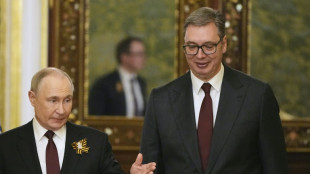
-
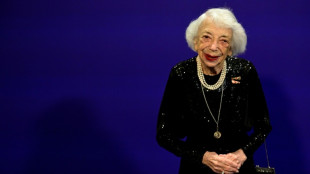 German Holocaust survivor and witness-bearer Margot Friedlaender dies at 103
German Holocaust survivor and witness-bearer Margot Friedlaender dies at 103
-
Timberwolves launch probe after fan's 'racially charged' abuse

-
 Giro over for Landa after high-speed opening stage crash
Giro over for Landa after high-speed opening stage crash
-
US approves first at-home cervical cancer screening device

-
 FIFA Women's World Cup expanded to 48 teams from 2031
FIFA Women's World Cup expanded to 48 teams from 2031
-
Mitchell leads, Lowry charges and Rory five back at rainy Truist

-
 Gauff holds nerve to join Sabalenka in Italian Open third round
Gauff holds nerve to join Sabalenka in Italian Open third round
-
Israel not involved in Gaza food distribution under US aid plan: envoy

-
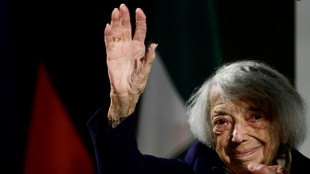 Margot Friedlaender, Germany's voice of Holocaust remembrance
Margot Friedlaender, Germany's voice of Holocaust remembrance
-
Fallen giant Hamburg close in on top-flight redemption

-
 Dozens of minors killed in Mexico cartel infighting
Dozens of minors killed in Mexico cartel infighting
-
Trump fires librarian of US Congress

-
 Spurs will show no fear against Man Utd in Europa League final: Van de Ven
Spurs will show no fear against Man Utd in Europa League final: Van de Ven
-
Renowned Holocaust survivor Margot Friedlaender dies at 103
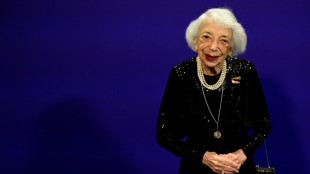
-
 Woods, 16-year-old Charlie, misses out in US Open qualifier
Woods, 16-year-old Charlie, misses out in US Open qualifier
-
Pakistan says India has put neighbours 'closer to major conflict'
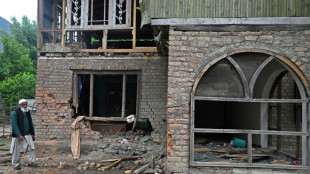
-
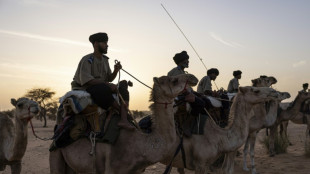 On patrol for jihadists with Mauritania's camel cavalry
On patrol for jihadists with Mauritania's camel cavalry
-
France, Poland sign treaty with mutual defence pledge

-
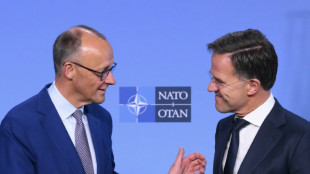 NATO chief seeks defence spending at 5% of GDP by 2032: Dutch PM
NATO chief seeks defence spending at 5% of GDP by 2032: Dutch PM
-
La Rochelle head coach O'Gara suspended for five weeks

-
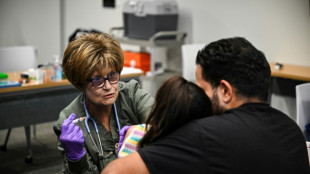 Measles roars back in the US, topping 1,000 cases
Measles roars back in the US, topping 1,000 cases
-
Fulham boss Silva refuses to rule out Saudi switch


Gabon longs to cash in on sacred hallucinogenic remedy
Beneath yellow fruit, hidden within the roots of the iboga plant in the forests of Gabon, lies a sacred treasure that the country is keen to make the most of.
For centuries, religious devotees have eaten it -- a psychotropic shrub that users say has addiction-fighting powers.
It fascinates foreign visitors, psychiatric patients and rich pharmaceutical companies that want to market it.
Now this central African country, where its use is enshrined in ancestral tradition, is scrambling to avoid missing out on the boom.
Teddy Van Bonda Ndong, 31, an initiate in the Bwiti spiritual tradition, calls it "sacred wood". He consumes it in small amounts daily, he said, for his "mental and physical health".
"It has a lot of power to help human beings," added Stephen Windsor-Clive, a 68-year-old retiree.
"It's untapped. A mysterious force lies within this plant."
He travelled to Gabon from Britain and consumed iboga -- in a powder ground from its roots -- during a 10-day Bwiti ceremony.
He tried it with a view to adopting it as a treatment for his daughter, who suffers from mental illness.
- Economic potential -
Given the interest, Gabon is seeking to channel the plant onto the international marketplace.
Exports of iboga products, including its active ingredient ibogaine, are few and strictly regulated in the country.
It grows mostly in the wild, but "more and more effort is being made to domesticate the plant", said Florence Minko, an official in the forestry ministry.
Potentially toxic in high doses, ibogaine can have effects similar to LSD, mescaline or amphetamines, and cause anxiety and hallucinations.
But users believe it can help drug addicts kick their habit and treat post-traumatic stress and neurological illnesses.
Yoan Mboussou, a local microbiologist and Bwiti initiate, hopes to gain an export licence for the 500-milligram ibogaine capsules he produces at his laboratory near the capital Libreville.
He sells them in Gabon as a food supplement, declaring them to have "anti-fatigue, antioxidant and anti-addictive" qualities.
Iboga, he believes, "is a potential lever to develop the economy and the whole country".
- Tradition and IP -
Countries such as the United States and France class iboga as a narcotic because of health risks identified in studies, especially heart issues. But it is used in treatment centres in countries including the Netherlands, Mexico and Portugal.
Numerous studies have examined its effects -- both helpful and harmful -- and scientists have taken out dozens of international patents for ibogaine therapeutic treatments.
"Most of those are based on studies of iboga use by Gabonese people, particularly by Bwiti practitioners," said Yann Guignon, from the Gabonese conservation group Blessings Of The Forest.
Despite the plant's "colossal therapeutic benefits", "Gabon is clearly missing out on the economic potential of iboga," he added.
"It did not position itself in this market in time by developing productive iboga plantations, a national processing laboratory and a proper industrial policy."
Overseas laboratories meanwhile have worked out how to make synthetic ibogaine and to extract it from other plants, such as Voacanga africana.
That flowering tree is available in greater quantities in Ghana and Mexico, which "can produce ibogaine at unbeatable prices", said Guignon.
And "Gabonese traditional knowledge is not protected by intellectual property regulations."
Currently only one company in Gabon has a licence to export iboga products -- though Minko, from the forestry ministry, said the country hopes this number will rise in the coming years.
She said companies were likely to produce more, spurred by revenue guarantees under the Nagoya Protocol, an international agreement on biological diversity and resource-sharing.
She wants the country to obtain a "made in Gabon" certificate of origin for iboga.
"This is a huge resource for Gabon. We have drawn up a national strategy for the conservation and sustainable use of the product," she said.
"Gatherings will soon be organised, bringing together all the groups concerned: NGOs, traditional practitioners and scientists."
- Soothing properties -
After harvesting iboga to the sound of traditional harps and consuming it in the initiation ceremony, Stephen Windsor-Clive was convinced by the benefits of iboga.
"I definitely want to bring my daughter here and have her have the experience," he said.
"This is my last attempt to find something which might be of assistance to her."
Another visitor, Tafara Kennedy Chinyere, travelled from Zimbabwe to discover Gabon and found, in the initiation, relief from anxiety and his "inner demons".
"I feel good in my body, in myself," he said, sitting under a tree after the ceremony.
"I feel like the iboga helped me to let go of things that you no longer need in your life."
C.Koch--VB
